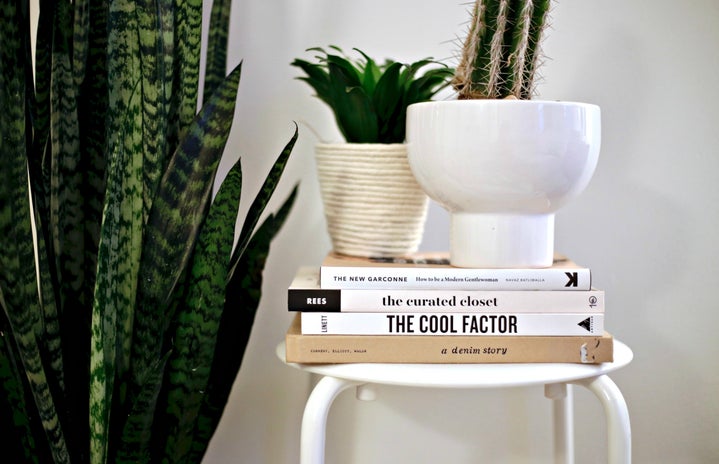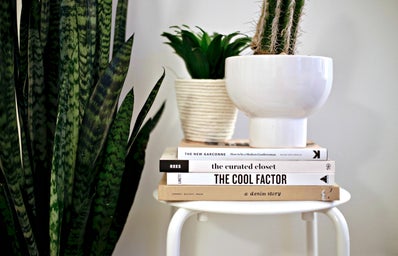Minimalism has been around for centuries and has often been associated with design and architecture but have you ever heard of minimalism as a lifestyle? According to Joshua Becker, an American author and philanthropist, minimalism is ‘the intentional promotion of the things we most value and the removal of anything that distracts us from it’. Most people who have heard of minimalism are scared of the idea because of a common misconception that minimalism means getting rid of everything you have. While decluttering is an essential part of the minimalist lifestyle, there’s a lot more to it than people realize.
Minimalism can mean different things for everyone. However, its sole purpose is to live with less by keeping things that are important to us and getting rid of materialistic possessions that don’t support what we value. The important thing to remember is that not everyone has the same values, so people’s ideas of minimalism can vary. For example, I love fashion and clothes but if I were to follow a minimalist lifestyle, it doesn’t mean I have to necessarily own just a few clothes and get rid of the rest. People are allowed to have collections of things they value because it’s all about the pursuit of their comfort and happiness. Recognizing what to eliminate from your life is the real challenge. I love clothes but do I need to own a piece of every new trend every summer? The challenge here for me would be to invest in clothes that I know will last me a long time and won’t have to be thrown away after every two summers. We gain more by letting go of things that do not bring value to our lives.
Looking at the world we live in, a minimalist attitude also highlights the feeling that all aspects of life have become relentlessly commodified. Capitalism makes us believe that the accumulation of more resources means stability, comfort and control. Since consumption is an essential tool in the efficient working of capitalism, consumers accumulate in the form of commodities, many of which they do not even need. The incessant cycle of accumulation and production results in capitalism’s penchant for over-production and it creates a psyche in consumers to attach value to commodities. Everything we purchase becomes a symbol of status and identity and consumption under capitalism seeks to satisfy our desires for more commodities and resources.
Minimalism helps us to not give in to these desires as it recognizes that our civilization is excessive and has lost its original authenticity which must be regained. It is a way of thinking about what makes a good life and how we can improve ours. By living a minimalistic lifestyle, we reject the notion that accumulating stuff will bring us happiness and instead are content with the things we decide to consciously keep. It goes beyond the idea of saving money because it is more about living with less in order to have the time and space for the things we value most. It’s a very resourceful way of living for people that are tight on money, but it doesn’t mean people can’t spend money they’ve saved on expensive things they like. You don’t have to deprive yourself of the things you love. By getting rid of things you don’t use and need, you make room for the things you do need and value.
When we talk about minimalism, you might picture stark white rooms with minimal furniture but the truth is that it doesn’t need to look a certain way. All that matters is finding the right amount of stuff that works for you and that is completely up to your personal aesthetic. Some people also create rules for themselves like owning a certain number of items in their wardrobe but the great thing about minimalism is that you don’t have to restrict yourself to anyone else’s rules. You can make your own rules to limit expenditure. At the end of the day, if you focus on consciously buying things and ignoring ads that try to sell you unnecessary things, you can ultimately declutter a lot of things in your life.
I feel like a lot of people can relate to me when I say that whenever I walk into a stationery store, I have this huge urge to buy something. There’s just something about pretty notebooks and colorful pens, paper, etc. that make me want to buy them. However, if I always buy something new every time I enter a stationery shop, I would just be left with a hoard of unnecessary resources. These things do make me happy, but after a while they get boring and I end up rarely using them. This is how I can differentiate between the things that give me temporary happiness and the things that I really value. There’s nothing wrong with owning a few pretty notebooks but if I’m always buying new ones that I never use, I would just be giving in to the consumerist mindset that hoarding items will make me happy. Dissatisfaction with materialism and the rewards of capitalism is after all, often the result of hoarding items we do not need.
The benefits of minimalism extend beyond materialistic possessions. Embracing this lifestyle means changing our mindset about the resources we own. It lets us question our relationship with materialism and why we own things. Once we start living with this new mindset, it can affect the way we spend our time and change the type of consumer we are. By living a minimalist lifestyle, we can learn how to live intentionally.


